Pathways Improvement Scope
Middle School Transitions creates early career explorations and WBL aligned to GCC and Rio Hondo College (RHC) programs for 7th and 8th graders, including students identified as disproportionately impacted by sub-groups, with opportunities to close equity gaps in completing CTE pathways. GCC’s partnership with GUSD across priority LARC sectors includes health courses and certifications leading to high-wage, high-growth local jobs, and transfer options to four-year universities or entry to middle-skill jobs. STEM courses and certifications leading to occupations in ICT/DM, including animation and engineering concepts, with high-growth potential and above living wages; business/global trade courses and certifications leading to emerging jobs for underrepresented students in the sector, including Hispanic students, in the county with the nation’s two largest trade ports. GCC courses for credit for GUSD CTE students include Business 110, Medical Office Admin. 101, Bus. Administration 101, Mass Comm 101, Speech 108, Theater Arts 101, EMT 138 and Admin. of Justice 101 (law). As middle schoolers take introductory CTE courses and visit worksites in priority sector industries, awareness of pathways grows. As part of ongoing CTE partnership, GUSD teachers and staff meet with GCC to review current alignment and articulations toward certificate and degree completions. Industry engagement through GCC and other CC partners and GUSD’s CTE advisory committees bring new career exploration opportunities for younger students. MS students feeding to Hoover HS will be able to learn about climate-forward careers in automotive care. GUSD’s articulation agreement with RHC provides for ATL sector advancement through college credit for the courses Automotive Electrical Tools and Diagnostic Procedures, Auto 106, Intro to Auto Service and Repair: Undercar Service, Auto 103, and Intro to Auto Service and Repair: Underhood Service, Auto 101. Additionally, Clark MS’s course Environmental GIS articulates to RHC’s GIS in Environmental Technology course GIS 230 for college credit. Other articulation courses with Pasadena City College (PCC) include Clark MHS Bus 3-4 Bus Communication & Social Media Marketing Honors to Bus Comm. BUS 011A; Crescenta Valley (CV) HS’s Biotechnology A/B to Biol 110 Intro to Biotech; and Adv. Sports Medicine to Kinesiology 002 Intro to Athletic Training. CVHS’s Biotech A/B course also articulates to Biotech 002 at LA Mission College.
Goals & Priorities
Middle School Transitions helps close equity gaps by improving access to information about high-skill/high-wage CTE opportunities in GUSD HSs, aligned and articulated with four CCs, predominately GCC. Older-peer interactions will bring MS students to HS campuses to tour CTE facilities and see projects completed by HS counterparts enrolled in CTE courses in 8 LARC priority sectors and PS. To better engage families, GUSD will introduce interactive career nights, virtual tours, and online modules, enabling parents to explore career pathways with their children and further narrowing the equity gap for underrepresented students. Outreach is amplified for English learners and newcomer immigrant and refugee students through GUSD’s “Bridge to Belonging” curriculum for site-based teacher specialists to support newcomers and families. In addition, multilingual messaging is enabled in the District’s ParentSquare app, which provides two-way communication between schools and parents/families. Hispanic students learning English and their families learn of career exploratory introductory courses at MSs through parent communication at the PTA, District messaging, and CTE resources available in print and online in Spanish. Low-income, foster, and homeless students will be contacted about career exploration and WBL when they start middle school, sometimes as early as 6th grade. Introductory courses will include engaging, relevant curriculum and real-world applications through project-based learning, group projects and presentations, and multiple opportunities for students to share and connect with community leaders, current professionals in health, STEM, climate action/environmental and law/fire support, and business owners. Students will practice and apply artificial intelligence (AI) literacy while exploring climate programs outlined in the CCCCO’s Leading the Way on Climate Action, including forestry and fire management and fundamentals of ecology aligned to HS CTE pathways. WBL allows students to develop a greater understanding of high-wage/high-growth occupations regionally through tours of local businesses and visits from speakers in STEM, health, environmental/climate action, and public safety jobs to learn current information aligned with pathways offered in 9th grade. Counselors support students in developing four-year plans based on new knowledge about careers obtained from exploratory courses and WBL activities in Glendale and surrounding cities.
Industry Sector(s) Or Pathway(s)
ARTS, MEDIA, AND ENTERTAINMENT SECTOR (AME), BUSINESS AND FINANCE SECTOR (FIN), ENERGY, ENVIRONMENT, AND UTILITIES SECTOR (NRG), HEALTH SCIENCE AND MEDICAL TECHNOLOGY SECTOR (HLT), HOSPITALITY, TOURISM, AND RECREATION SECTOR (HOS), INFORMATION AND COMMUNICATION TECHNOLOGIES SECTOR (INF), MANUFACTURING AND PRODUCT DEVELOPMENT SECTOR (MAN), PUBLIC SERVICES SECTOR (PUB), TRANSPORTATION SECTOR (TRA)
Additional CCD Partners
